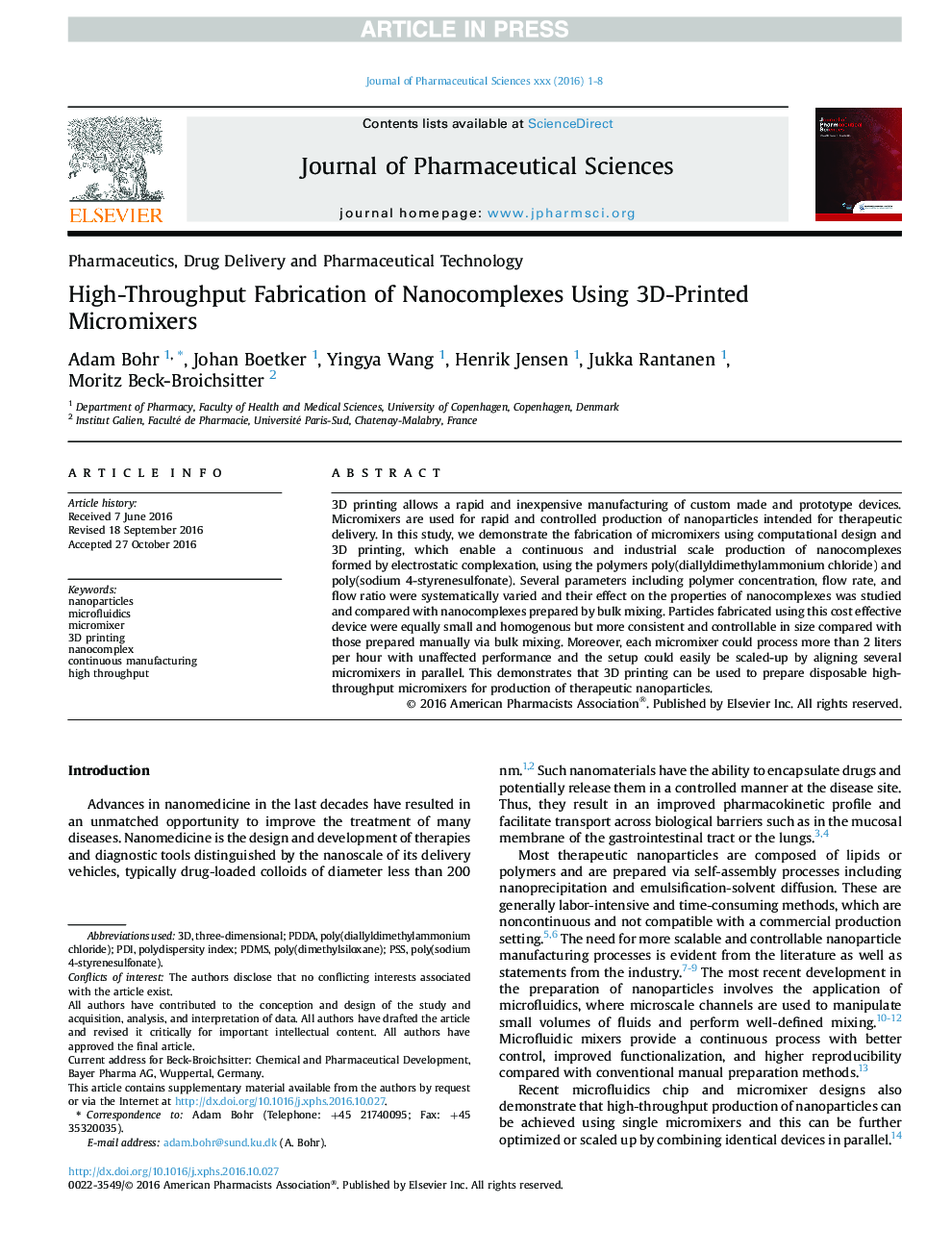| Article ID | Journal | Published Year | Pages | File Type |
|---|---|---|---|---|
| 8514456 | Journal of Pharmaceutical Sciences | 2017 | 8 Pages |
Abstract
3D printing allows a rapid and inexpensive manufacturing of custom made and prototype devices. Micromixers are used for rapid and controlled production of nanoparticles intended for therapeutic delivery. In this study, we demonstrate the fabrication of micromixers using computational design and 3D printing, which enable a continuous and industrial scale production of nanocomplexes formed by electrostatic complexation, using the polymers poly(diallyldimethylammonium chloride) and poly(sodium 4-styrenesulfonate). Several parameters including polymer concentration, flow rate, and flow ratio were systematically varied and their effect on the properties of nanocomplexes was studied and compared with nanocomplexes prepared by bulk mixing. Particles fabricated using this cost effective device were equally small and homogenous but more consistent and controllable in size compared with those prepared manually via bulk mixing. Moreover, each micromixer could process more than 2 liters per hour with unaffected performance and the setup could easily be scaled-up by aligning several micromixers in parallel. This demonstrates that 3D printing can be used to prepare disposable high-throughput micromixers for production of therapeutic nanoparticles.
Keywords
Related Topics
Health Sciences
Pharmacology, Toxicology and Pharmaceutical Science
Drug Discovery
Authors
Adam Bohr, Johan Boetker, Yingya Wang, Henrik Jensen, Jukka Rantanen, Moritz Beck-Broichsitter,
